Publication series 'Structural change of property'
About the series
Property is a largely unquestioned institutional basis of the current world and economic order. At the same time, in the early 21st century, property is increasingly being challenged in almost all its forms and manifestations and is more politically contested than ever before. It has become questionable not only because the forced global enforcement of private property following the collapse of state socialism at the end of the 20th century has led to a serious increase in inequality in the distribution of property and wealth, but also because the tried and tested forms of ownership have now become dysfunctional in many areas for ecological sustainability and even for economic growth. As a result, the meaning of what it means to be the owner of something (e.g. a flat, a forest, a share of stock) has been thrown into flux. However, it has also become questionable due to new technical developments, especially digitalisation processes: Scarce material goods now seem to be replaced by things that can be shared and accessed indefinitely, which raises entirely new questions of intellectual property, copyright and patent rights, etc. Finally, what is suitable for being organised as property is also politically and culturally contested: works of art? Human organs? DNA sequences? Raw materials? Algorithms? Forests? Water? Oceans? Asteroids? What are the alternatives to private property?
This publication series is the result of the Collaborative Research Centre 294, 'Structural Change of Property', funded by the German Research Foundation (DFG) with a focus on the universities of Jena and Erfurt. It is dedicated to systematic, interdisciplinary research into the subject area outlined above and seeks to bring together outstanding academic work on the history, present and future of property.
Each volume is published open access.
Upcoming Releases
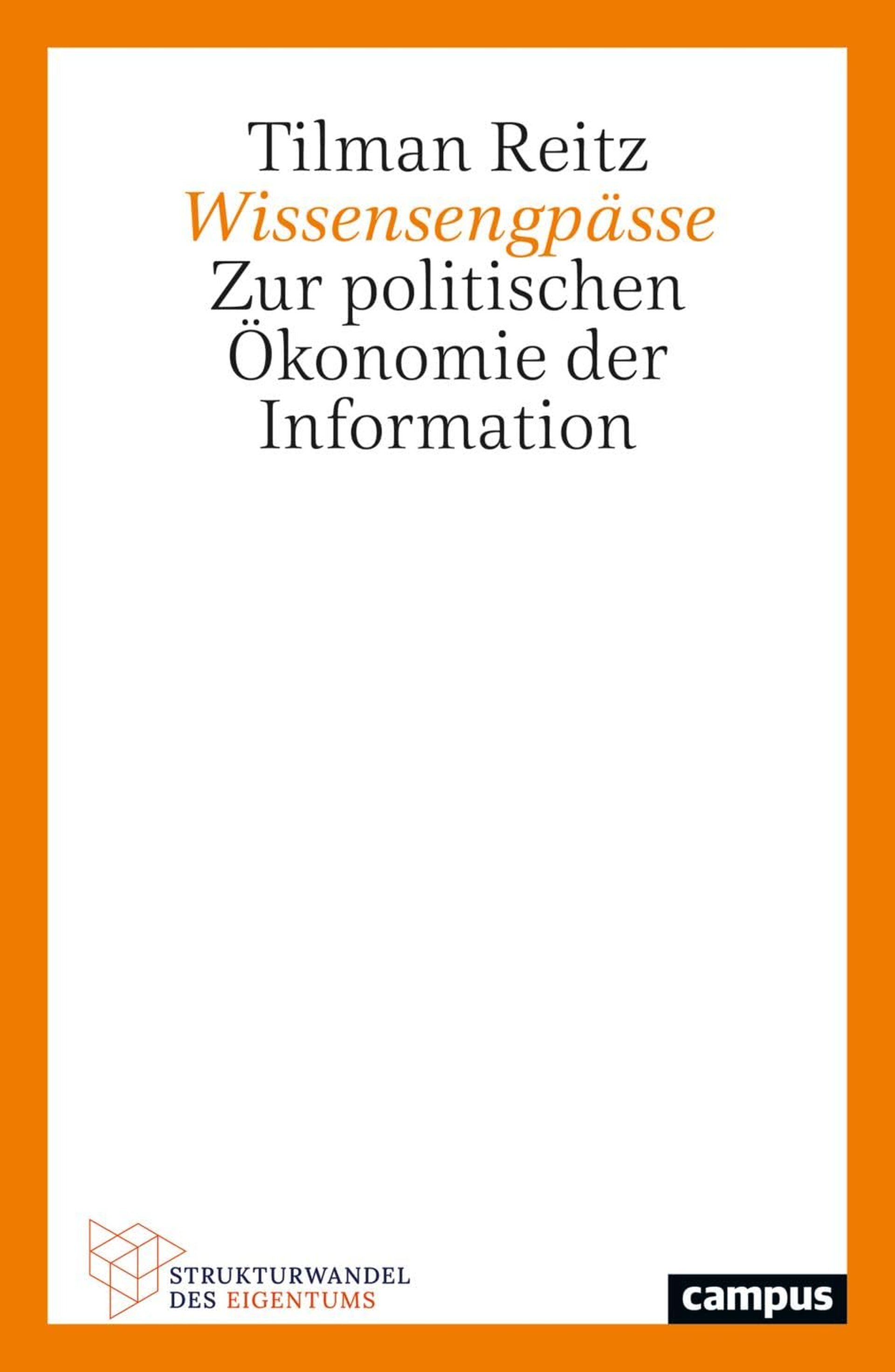
Title: Wissensengpässe. Zur politischen Ökonomie der Information
Author: Tilman Reitz
December 2025
About the book
The concept of knowledge as property is multi-layered and complex. Tilman Reitz shows that in technologically advanced capitalism, knowledge can only be used economically if it is simultaneously partially missing and artificially limited. This double dynamic is revealed, for example, in the reduction of knowledge to mere information in the digital economy, in the control of science by so-called academic capitalism and in the independence of supposed certainties in the modern political public sphere. Philosophical, economic and sociological approaches illustrate how the constraints of the knowledge economy threaten knowledge itself.
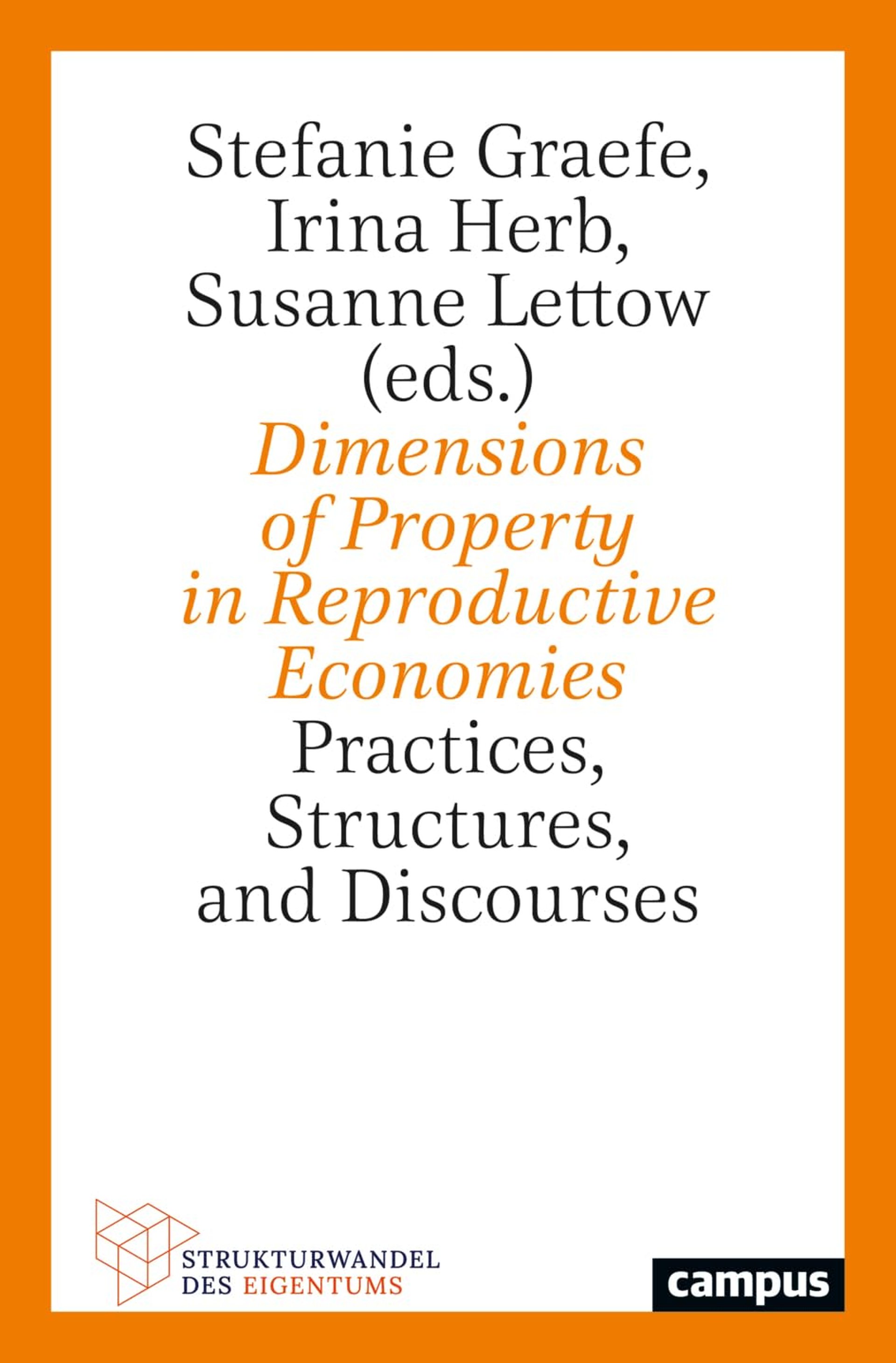
Title: Dimensions of Property in Reproductive Economies. Practices, Structures, and Discourses
Edited by Stefanie Graefe, Irina Herb, Susanne Lettow
September 2025
About the book
Since the late 20th century, the production, circulation and consumption of bodily materials and reproductive services such as oocyte transfer and surrogacy have evolved into proliferating transnational reproductive economies. A wide range of new actors have emerged in this field, alongside an array of locally specific legal regulations, as well as (bio-)ethical discourses. Critical research on the political economy of assisted reproductive technologies (ART) has studied and problematized these developments. In this context, concepts such as production and reproduction, gift exchange, commercialization and labor have been adopted and re-formulated in order to grasp the specificity of reproductive economies and their correlations with capitalism. This edited volume aims to extend these critical perspectives through taking property and processes of propertization systematically into account. Focusing on property relations helps to highlight and analyze processes that constitute property objects, property subjects and property relations and their entanglement with intersecting relations of power and domination in reproductive economies.
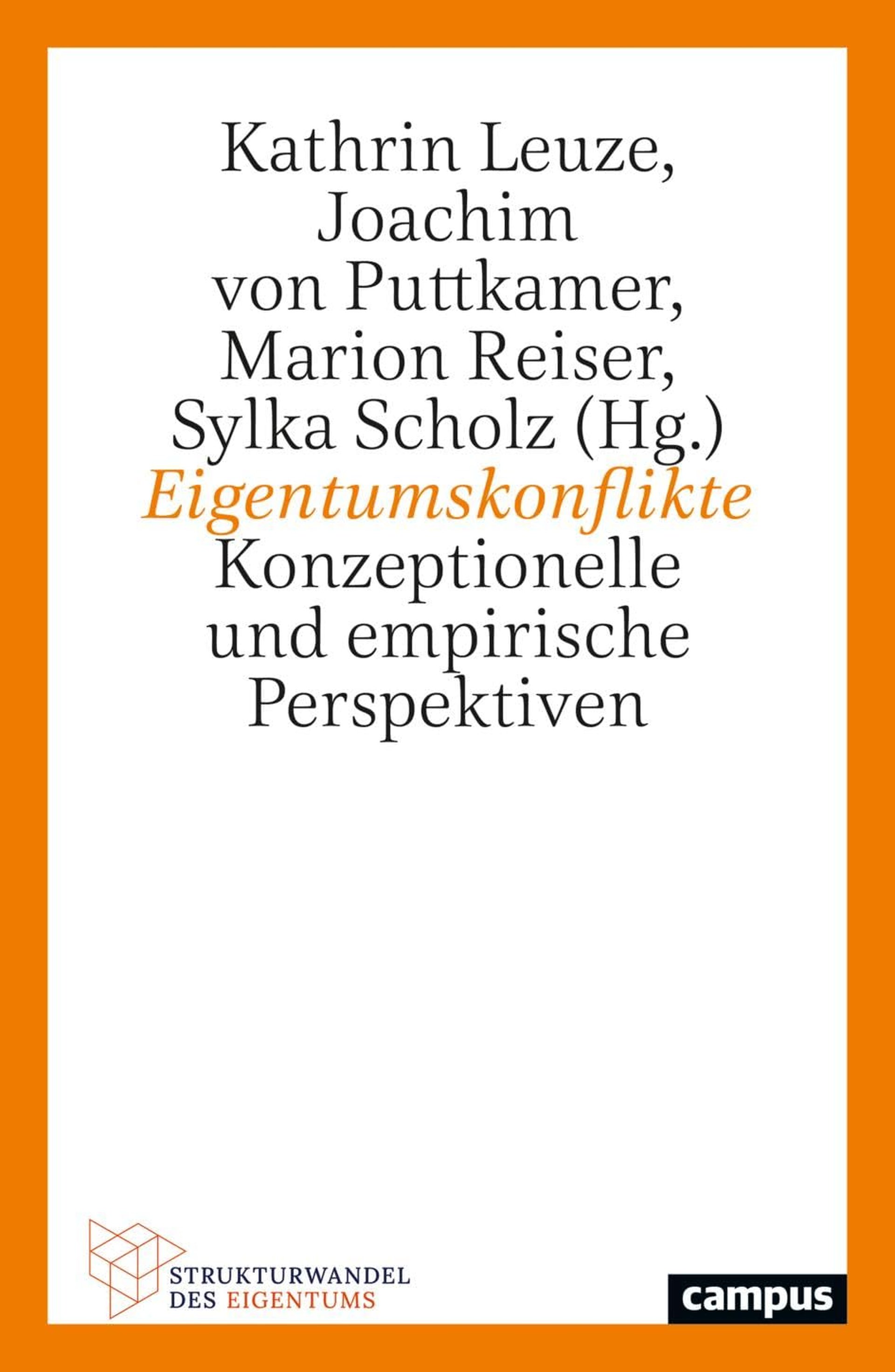
Title: Eigentumskonflikte. Konzeptionelle und empirische Perspektiven
Edited by Kathrin Leuze, Joachim von Puttkamer, Marion Reiser, Sylka Scholz
September 2025
About the book
Many social conflicts in contemporary capitalist societies revolve around (private) property, an institution that is constitutive for the emergence of modern capitalist societies, but which has only been marginally considered in academia and society in recent decades. The articles in this book examine the various conflicts over (private) property that are evident in contemporary capitalist societies. Do these conflicts have the potential to fundamentally transform social property systems?
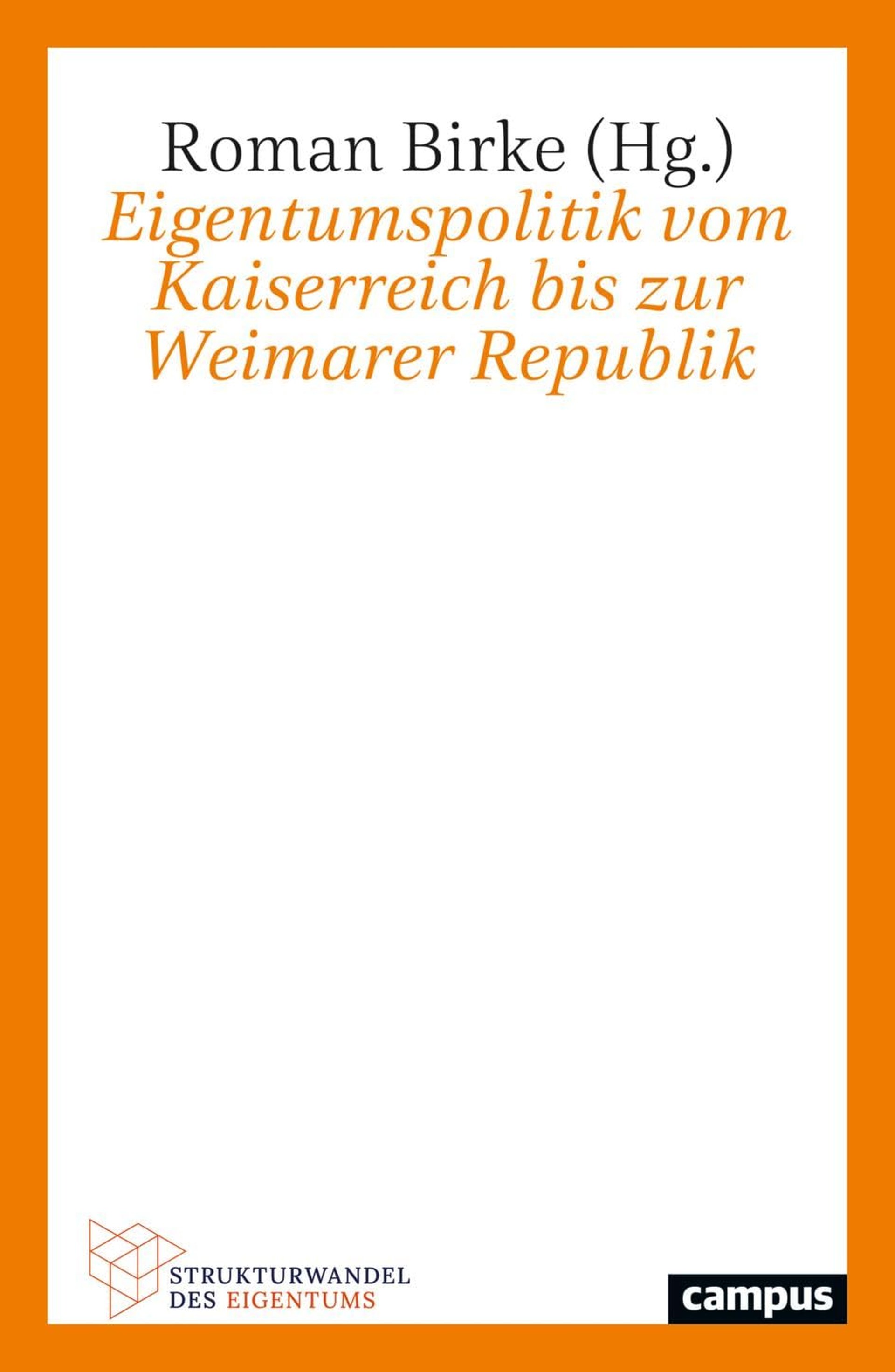
Title: Eigentumspolitik vom Kaiserreich bis zur Weimarer Republik
Edited by: Roman Birke
September 2025
About the book
Current property conflicts are omnipresent, for example when it comes to public space, the housing market, the freezing of financial securities of hostile political blocs or the transformation towards a sharing economy. This volume examines the historical dimension of these conflicts and researches property in the German Empire and the Weimar Republic. The contributions in the volume show how historical actors advanced their respective political agendas by using arguments based on property.
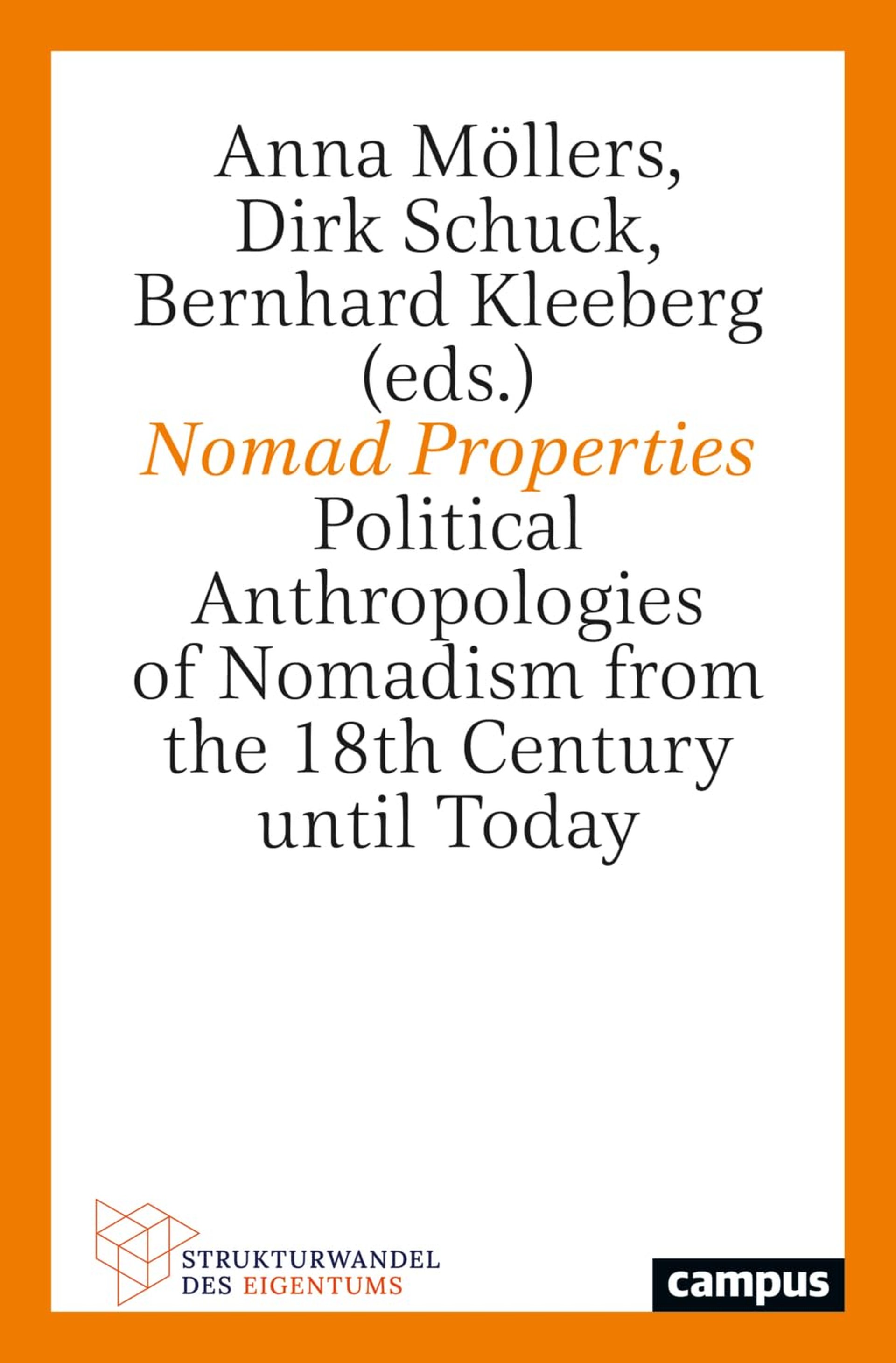
Title: Nomad Properties. Political Anthropologies of Nomadism from the 18th Century until Today.
Edited by: Anna Möllers, Dirk Schuck, Bernhard Kleeberg
July 2025
About the book
What does the discourse on nomadism say about anthropological concepts of western societies? This edited volume relates historical instances of nomadism to the role of "the nomad" in political discourses and recent theoretical debates. The figure of the nomad was and still is constructed as an antagonist within a (neo-)liberal frame of narratives about sedentarism, productivity and improvement. Whereas the discourse about nomadism in the 18th and 19th century was entangled with colonial contexts and ideas about so called "primitive" societies, it became even more multifaceted in the 20th century, considering ideas about "nomadic thinking" of Deleuze or Guattari, and different forms of "modern nomadism" on the rise: from travelling day laborers to refugees of war, to scientists, to a global managerial class.
The following titles have been published so far:

Title: Die Geburt des Eigentums
Author: Jan Dirk Harke
February 2025
About the book
Property, as an effective right towards anyone, was not inherently part of Roman law. The concept of exclusively attributing a thing to its owner only appears significantly after the law of the twelve tables. With this however, the crucial steps towards testamentary freedom are being taken. Hereby, the boundaries of the position of the testator are being deconstructed, which in turn could not comply with a merely relative attribution of things. If an owner can decide about the destiny of their property, even beyond death, they need to be in position of exclusive entitlement before the fact. The concept of usufruct further connects with testamentary freedom as a catalyst for development. It is constructed as the functional opposite of property and, recognizably in the context of inheritance, fulfills the purpose of supporting disinherited relatives.

Title: Havings. Steps Towards a New Economic Philosophy of Property and Beyond
Author: Carsten Herrmann-Pillath
November 2024
About the book
Exploring the economic, sociological, and philosophical implications of property, this book aims to overcome the conceptual and ideological limitations inherited from 19th-century debates and legal developments. It introduces a new conceptual framework that substitutes the term »property« with the terms »having« and the neologism »havings«, analyzed through two dimensions: the action modes of having (appropriation, recognition, and assignment) and the structural modes of havings (possession, ownership, and property). After presenting two case studies, the final chapter outlines a new economic system that moves beyond the polarity of capitalism and socialism, grounded in the multidimensionality of having. The study addresses a wider audience in economics, social sciences, philosophy, and jurisprudence.
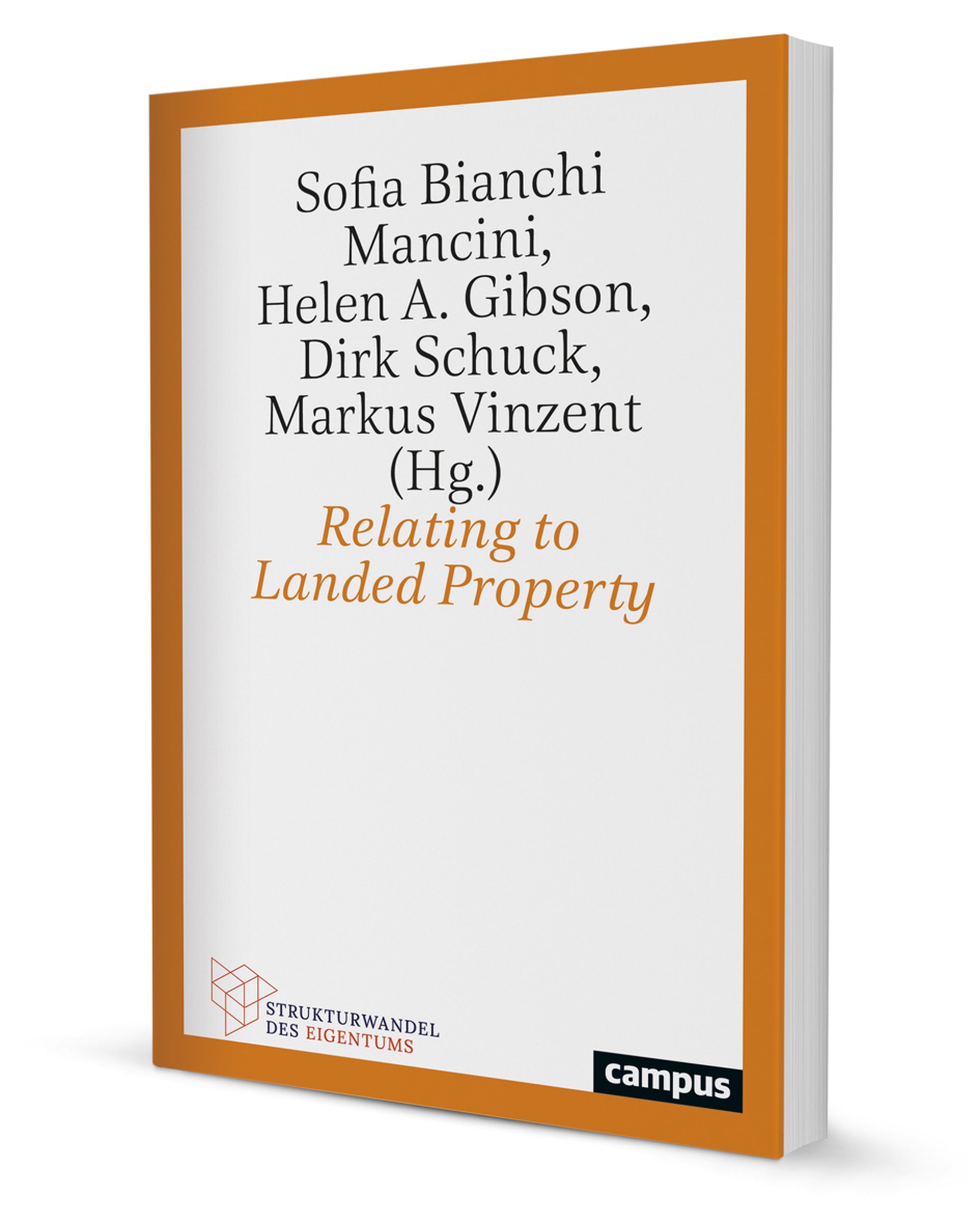
Title: Relating to Landed Property
Edited by Sofia Bianchi Mancini, Helen A. Gibson, Dirk Schuck, Markus Vinzent
September 2024
About the book
How is space conceptualised and constituted through historical and religious claims to land ownership? How is dispossession enacted and theorised in changing property regimes? The contributions in this volume engage with postcolonial critiques of land tenure and provide a much-needed contextualisation of the ways in which histories of divine possession, empire, settler colonialism, slavery and the dispossession of indigenous peoples inform contemporary practices of land tenure. Bringing together perspectives from the fields of religious studies, history, philosophy, legal history, economics and sociology, this book makes an important contribution to linking theory and practice in the critique of contemporary property regimes in Europe and North America; it also provides methodological suggestions for grounding theoretical discussions in a nuanced understanding of the past.
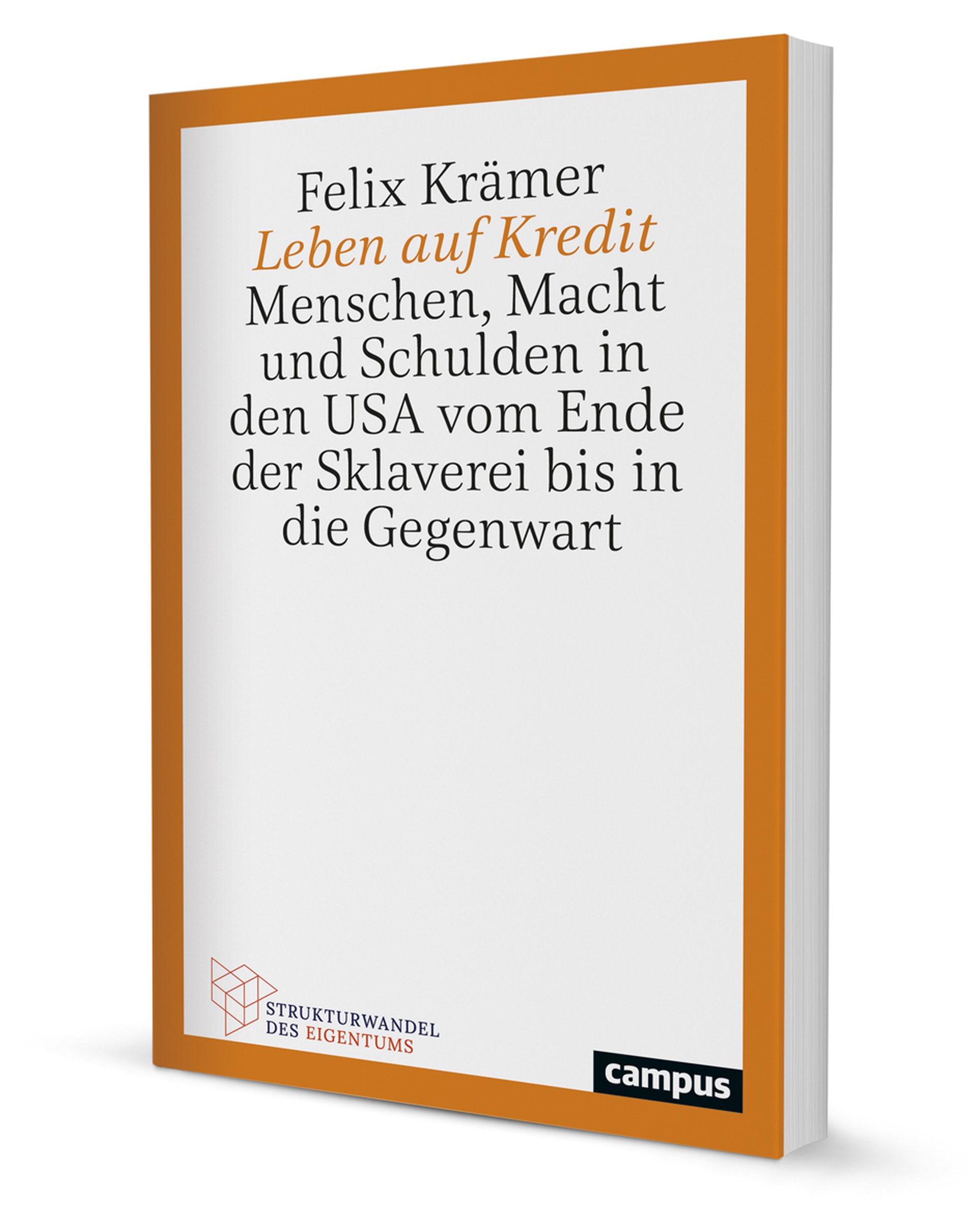
Title: Leben auf Kredit. Menschen, Macht und Schulden in den USA vom Ende der Sklaverei bis in die Gegenwart.
Author: Felix Krämer
June 2024
About the book
Debt characterises the lives of millions of people in the USA. Felix Krämer sets out in search of their stories from 1865 to the present day. It becomes clear that Black Americans in particular, but also women, workers and migrants, were repeatedly exposed to higher credit risks or unbearable conditions. Such differences are addressed with the term "debt difference". The book demonstrates this through various forms of debt such as the system of sharecropping after the end of slavery, images of loan sharks or property debt and traces how student debt and credit card practices brought neoliberalism into people's everyday experiences. With its focus on precarisation through debt, the book uncovers a production line of the "wealth gap" in the USA and thus fills a gap in the new history of capitalism.
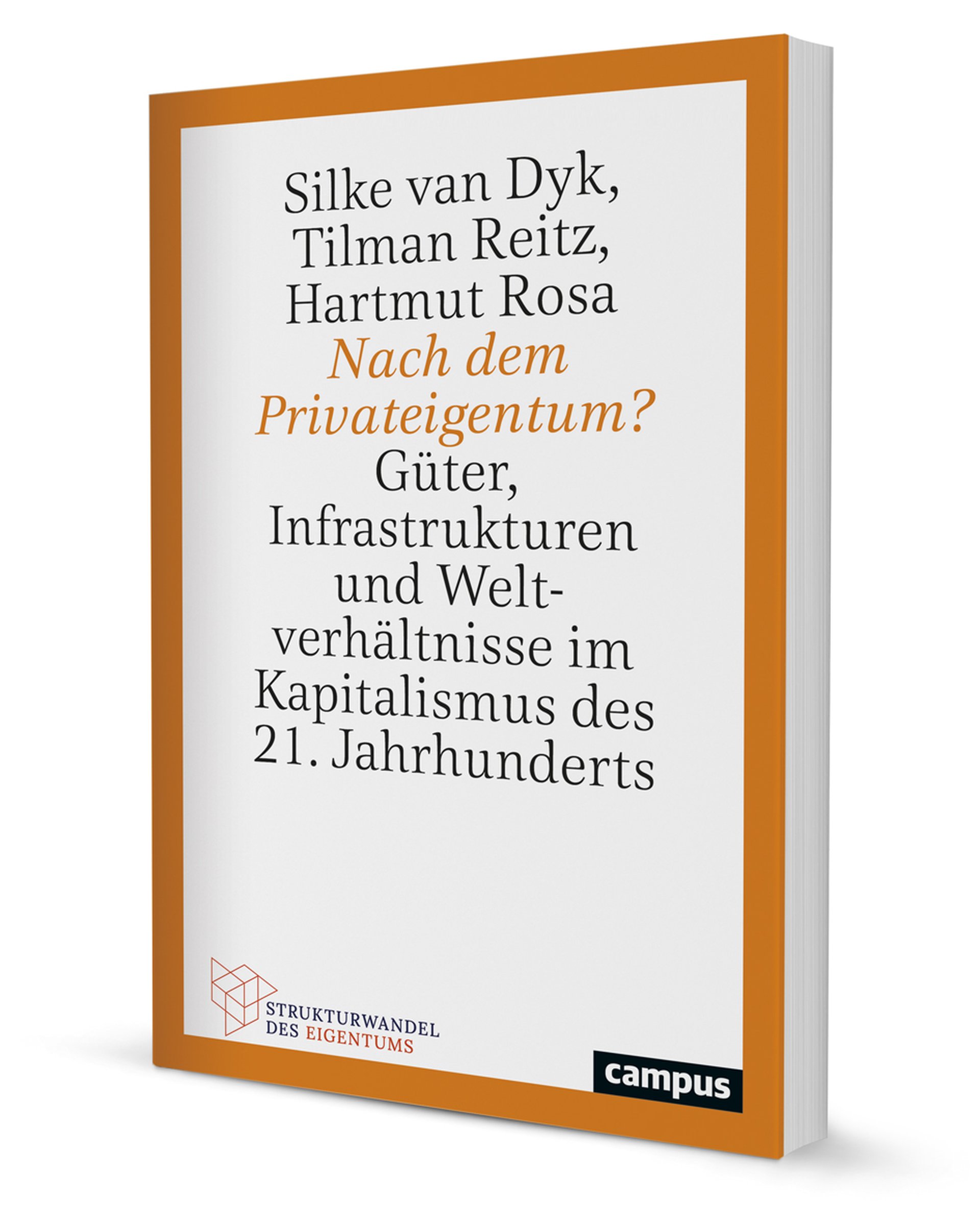
Title: Nach dem Privateigentum? Güter, Infrastrukturen und Weltverhältnisse im Kapitalismus des 21. Jahrhunderts.
Authors: Silke van Dyk, Tilman Reitz, Hartmut Rosa.
June 2024
About the book
Political conflicts over the distribution of property, precarious infrastructures, technological developments and economic and ecological crises suggest a structural change in property in the 21st century. The contributions in this volume analyse this change from a sociological perspective. They focus in particular on non-industrial goods - from knowledge and information to land and property - as well as collective contributions and infrastructures that increasingly determine capitalist economies. Although private property is more powerful than ever after decades of deregulation and concentration, it is facing a serious crisis and is being supplemented by new orders of access and division, which are also shifting individual and collective world relations.
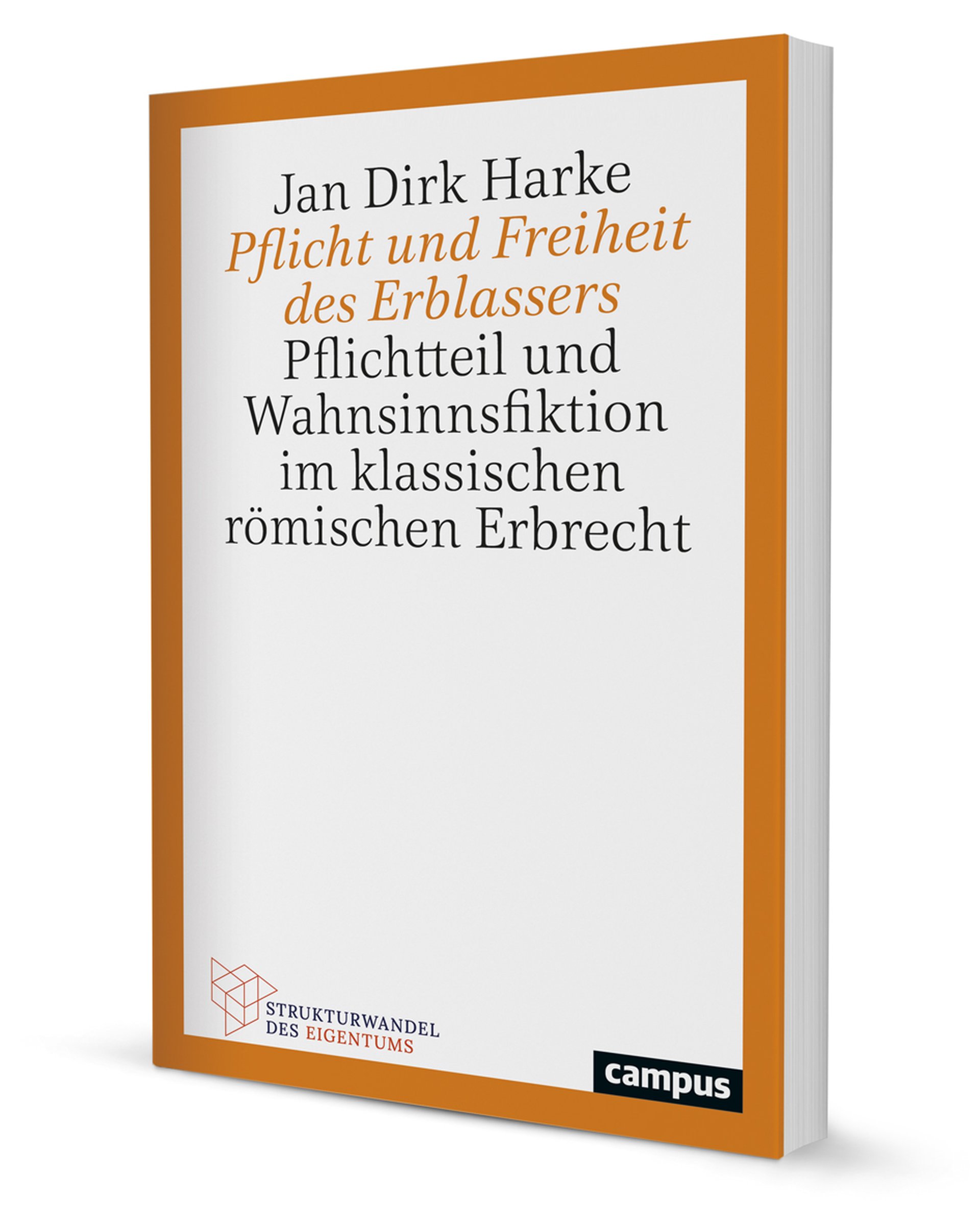
Title: Pflicht und Freiheit des Erblassers. Pflichtteil und Wahnsinnsfiktion im klassischen römischen Erbrecht.
Author: Jan Dirk Harke
May 2023
About the book
The right to a compulsory portion is still a central component of inheritance law today. It ensures that the closest relatives of a deceased person receive a minimum share of their estate. Jan Dirk Harke traces how this right gradually asserted itself against an initially unlimited freedom of testation in Roman property law: in order to fulfil the requirement of family responsibility, the closest relatives of a testator were given the opportunity to contest a will that excluded them from the inheritance as being contrary to their duties. However, this was only possible under the pretext that the testator was not of sound mind when the will was made. This demonstrates the great importance of testamentary freedom for ancient society.
